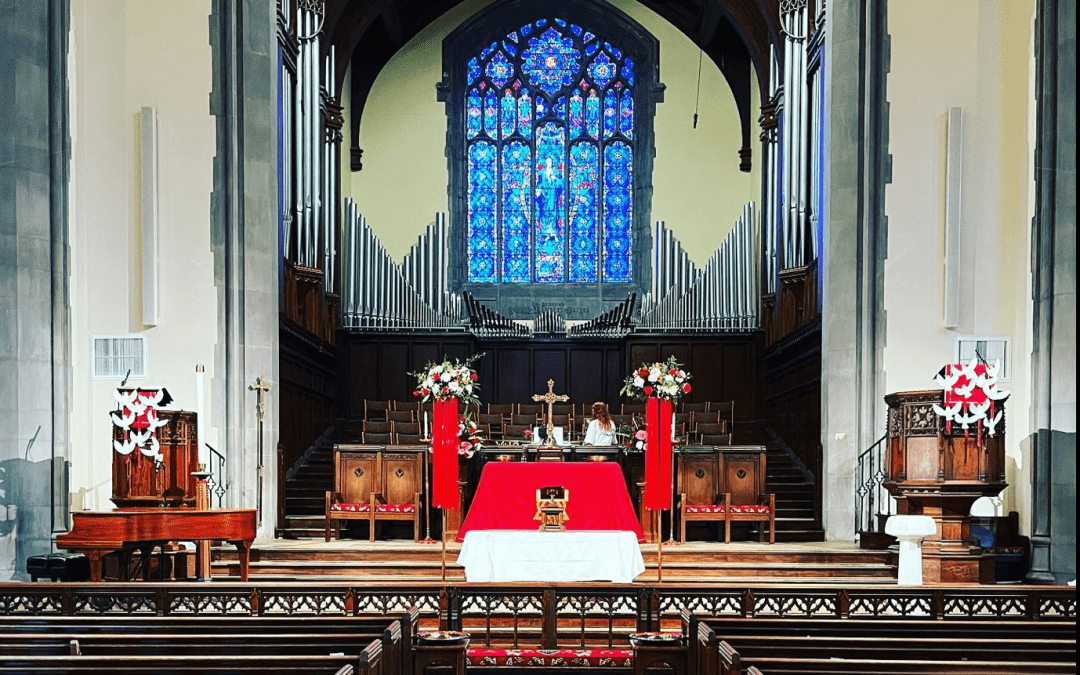Welcome to our summer series, “Interview with a Pastor.” This series will highlight some of the pastors and churches in Project Thrive as we journey together toward the final year of the Thriving Congregations Initiative. We are grateful for the pastors as they lead their churches toward a thriving, hopeful future!
The Rev. Dr. Carol Cavin-Dillon is senior pastor at West End United Methodist Church. West End is the largest congregation in Project Thrive with over 2000 members and average Sunday attendance in the hundreds. Their worship services are traditional in style with a choir and organ. As they celebrate their 150th anniversary this year, West End looks to the future with hope as a place of diversity and inclusion serving the Vanderbilt/West End neighborhood.
Carol spoke with Nick over the phone for our first interview. Answers are lightly edited for clarity and length.
The goal of Project Thrive is to help our churches thrive in their context. In your opinion, you believe your church is thriving and in what ways?
I do think that West End has a lot of vitality. We still have so much unexplored potential that we are still moving into but moving forward for sure. Some signs of that are – on Sunday morning – seeing new folks who are visiting and getting connected. They are drawn to our mission, intentional inclusion, traditional worship, and seem to find a fit in our DNA. We have had lots and lots of children recently and many of those are getting baptized.
Has your definition of thriving changed through this process? If so, how?
I think in some ways, yes. The expectation of thriving had to change because of COVID and all we couldn’t do for two years. We are still emerging and figuring things out as patterns are changing. What does thriving look like in a time of change and uncertainty and unpredictability? Thriving, through the past two years, is people coming back to church and getting reconnected. Our finances are in good shape and people are looking toward the future. This feels as good as we could expect given all that has happened and as we continue to discern our future.
Do you think the nature of your church either has changed or will change in the future?
I think so. I feel like we are in the midst of a long multi-year shift moving away from being an old Nashville establishment church into a more diverse church: racially, economically, generationally, in a very good way.
What has been a valuable lesson you have learned as your church has participated in this process?
In COVID, it was particularly difficult to do this work. On top of that, West End as a congregation that is very Sunday-morning-centric, much like a cathedral model, and that makes it difficult to come to a place of one mission. It is a challenge to build that cohesion. We are affirmed, though, as our leaders keep our conversations and motivation around our God-sized dreams and objectives.
What part of the process has been most helpful?
For me personally, the monthly coaching has been great. I have gotten a lot out of that relationship. I keep a list of things to talk to my coach about, and it has been helpful having someone with whom I can bounce ideas or find wisdom. For the church, the conversations about our future were helpful as we moved out of the pandemic and look to what’s next. It gave us a reason to keep ourselves moving forward and not focused on the past. Also, the summer 2020 Zoom meetings discussing ministry during the initial stages of COVID were really helpful to feel connected to others as we navigated what could be done to hold our communities together. That time could have been much lonlier without that regular time of connection.
What do you want to celebrate?
Even though the timing of COVID was unfortunate, being in Project Thrive gave us a lifeline and a motivation to continue to look to what’s ahead. Things were uncertain, but we felt like we had a way to move forward after the pandemic had come to its current state.
